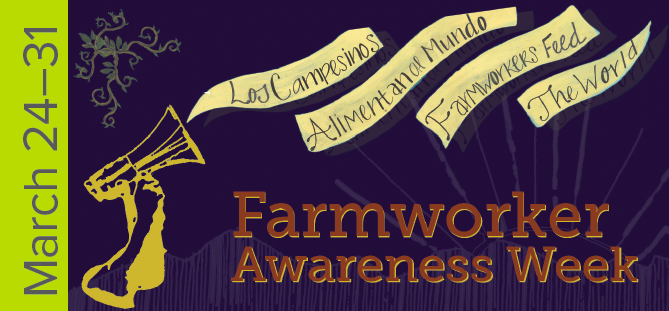
Farmworkers are the food system’s most vital workers; their labor allows us to enjoy fresh fruits and vegetables year-round. Despite farmworkers’ economic and cultural contributions to the communities in which they live and work, they continue to be among the lowest paid, least protected and unhealthiest workers in the United States. The international principles that guide Seward as a consumer cooperative, along with our Ends Statement, challenge us to provide goods and services in a socially responsible way. Despite the growing interest and demand for natural foods, this remains a difficult challenge as farmworkers are largely invisible to shoppers and diners.
Co-op shoppers have a strong interest in high-quality food. Awareness of farmworkers, who are often exploited, needs to be part of that equation. Eighty-five percent of fruits and vegetables harvested in this country is handpicked, and it is estimated that between 2 million and 3 million men, women and children work in the fields across America. Many farmworkers live in poor conditions, small spaces and have unpredictable work. Instead of valuing farmworkers in our society, we undercut their ability to live and work by denying them a living wage and benefits like healthcare. When compared to others, the people who plant and harvest our fruits and vegetables suffer from the highest rate of toxic-chemical injuries, as well as higher incidences of heat stress, dermatitis, urinary tract infections, parasitic infections and tuberculosis. In extreme cases, farmworkers can be beaten, sexually harassed or even enslaved—all within the borders of the United States.

Farmworkers remain unnoticed by many and continue to live and work in unacceptable conditions, in part because farmworkers are treated differently under the law. Federal law simply does not guarantee farmworkers unemployment insurance, protection when joining a union or overtime pay. The Fair Labor Standards Act was amended in 1978 to mandate minimum wage for farmworkers on large farms only, and it does not include provisions for overtime. Though an increasing number of consumers choose locally and organically grown food, farmworker justice is often not part of food conversations.
At Seward Co-op, we recognize that we exist within a large, often exploitative, industrial food system. That context presents challenges in operating two full-service grocery stores, a production kitchen and a café. However, we remain committed to honoring the critical economic and cultural contributions made by farmworkers. Every day, our staff demonstrates our commitment to social responsibility by seeking out truly sustainable local growers and producers, who acknowledge the abuse and inequities in agriculture and actively work against them. Over the past 45 years, we have built strong relationships with local farmers and have seen firsthand how they treat the land and farmworkers. The trust that comes with these relationships is something a label or certification simply cannot ensure. Unfortunately, until all farmworkers are wholly protected under federal law, there are national brands and products on our shelves that contribute to this nation’s dominant agricultural system and its inherent injustices. All grocers, including Seward and other food co-ops, meet the needs of their customers by offering national brands in seasons when local is unavailable.

During National Farmworker Awareness Week (NFAW), March 24–31, Seward Co-op honors the contributions of farmworkers. Please join us on Friday, March 30, at the Friendship store for an evening screening of Food Chains, a documentary film about agricultural labor in the United States. As conscious consumers throughout the year, stay attuned to opportunities to positively impact our food system. Please consider rounding-up your grocery or café purchase for SEED, especially when the funds raised are directed at local, socially responsible farms like the Hmong American Farmers Association (HAFA) and Dream of Wild Health.
Seward Co-op is a member of two advocacy organizations—Domestic Fair Trade Association and National Co+op Grocers—that support actions and advocacy for just living and working conditions for farmworkers, and an end to unfair treatment under the law. Please follow our social media posts March 24–31 in recognition of National Farmworker Awareness Week, sponsored by Student Action with Farmworkers in North Carolina.

